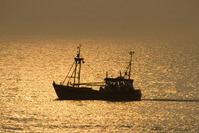Marquis Grissom is a former professional baseball player. He led the National League in stolen bases in 1991 and ‘92, was a member of the National League All Star team in 1993 and ’94 and won four consecutive Golden Gloves. He joined the Atlanta Braves in 1995 where he helped them win their first and only World Series. In all, he played 17 years in the majors, hitting 227 homers, stealing 429 bases and finishing with a batting average of .272. Today he runs the Marquis Grissom Baseball Association, a foundation he started which teaches kids how to perform at their highest levels, both on and off the baseball field.
Some interesting insights from this episode:
- How hard work at a very young age would help prepare him for a successful baseball career.
- Learn which sport he always dreamed of playing as a professional. Hint: It’s not baseball.
- Hear what his Plan B and Plan C were if baseball didn’t work out.
- Hard work, discipline, focus and determination were the keys to his success.
- How he was able to turn around a season-long slump just in time to help the Braves win its first World Series.
- The lessons learned in baseball are life lessons kids will carry throughout life.
- The way to not live in the past is to be even happier living in the present.
You don’t have to look real hard to see where Marquis Grissom’s work ethic comes from. He didn’t have a cozy lifestyle growing up. If he wasn’t pumping water to boil for his parents and fourteen siblings, he was chopping wood, laying bricks, mixing mortar or doing a number of other odd jobs. His parents laid the foundation early on that you have to work hard to achieve anything in life.
It’s that strong work ethic ingrained in him at an early age that would underpin much of his success as a professional baseball player. He was willing to do whatever it took to become the best he could be. Being competitive wasn’t good enough. He strove to be the fastest, the strongest and the smartest player on the field at every game. That meant more batting practice, more fielding practice, more running, more conditioning and pretty much more of anything and everything to gain that extra edge. When the odds of a high school baseball player making it to the major leagues are a miniscule 1 in 5,000, it’s no surprise that it would take this kind of herculean effort to realize his dreams.
As talented and as driven as he was, he also had a good head on his shoulders. He attended college instead of chasing the quick buck. Education was a value he always embraced, even with the lottery ticket to fame and fortune. And knowing that a prolific career in professional sports is never guaranteed, he always had a backup plan. Had baseball not worked out, he could have been just as happy as a fireman or construction worker.
So when you’ve had a standout professional sports career with all the fame and money and glory that comes along with it, how do you prevent yourself from looking in the rearview mirror for the rest of your life? It sounds like a worn platitude to say you just need to find something after retirement that fills you with as much passion. But that’s exactly what Marquis did in founding the Marquis Grissom Baseball Association.
The mission of the foundation is to teach kids how perform at their highest levels both on and off the baseball field. The staggering odds of making it as a professional baseball player aren’t lost on Marquis. He knows the vast majority of these kids won’t ever see a dime from the sport. But if he can prepare these kids to go to college, whether or not baseball is part of the package, he’ll feel like it was worth all the effort. And with 83% of his students going to college, mission accomplished.
You won’t find too many superstar athletes as modest as Marquis. With all of his incredible talent and disciplined work ethic, it’s somewhat of a surprise that it’s luck to which he attributes most of his success. It’s hard to argue that serendipity plays a role in just about any success story but in this case, it’s a very minor supporting role. That said, for Marquis, it’s all beside the point. For that was then and this is now. And all that matters now is to show gratitude by dedicating this next chapter of his life to teaching the next generation the fundamentals of baseball and of life.



